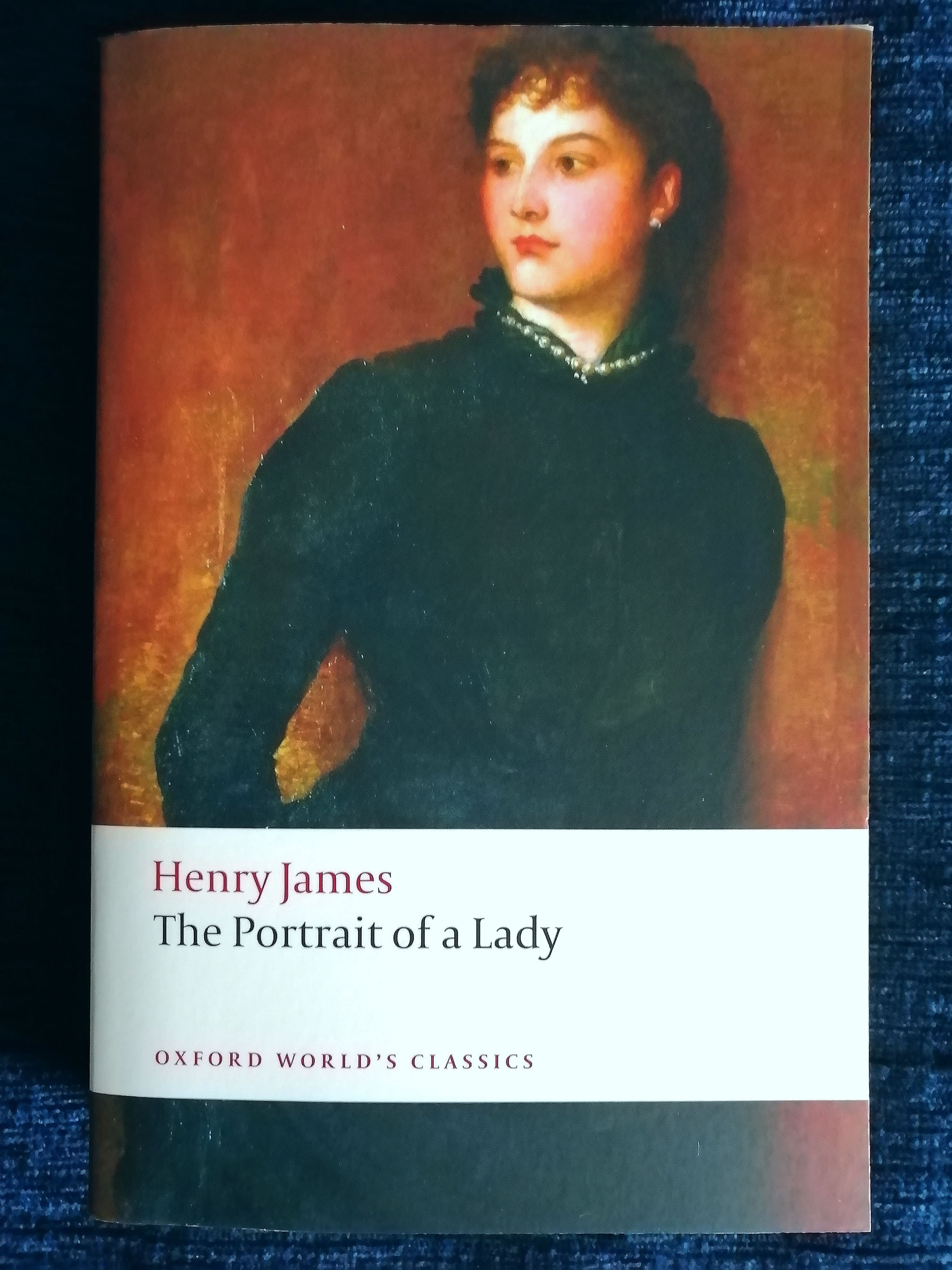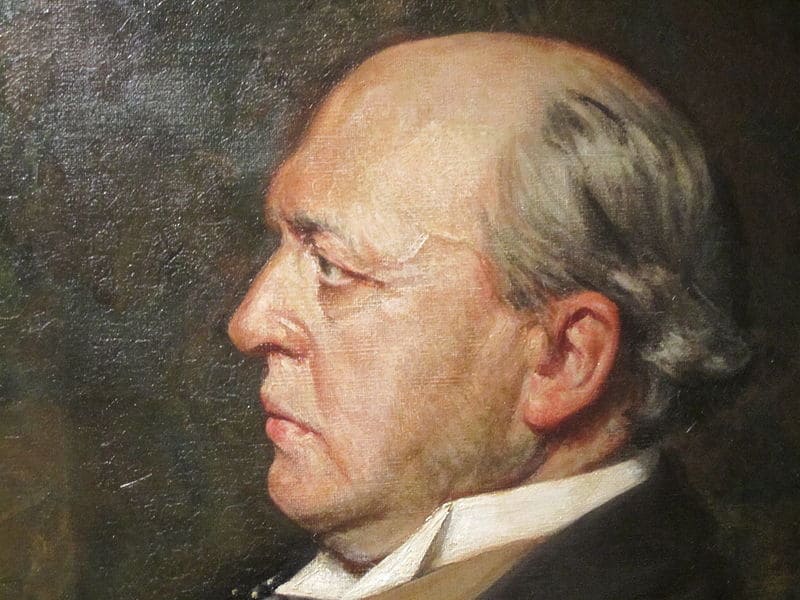This month I am writing a series of Lesson posts covering the most common mistakes that students make. Today I am focusing on confusing English issues for native Russian speakers and hope very much it will help anyone who struggles with these areas.
As I mentioned in my previous Lesson, there is no need to feel awkward or embarrassed about making these or any mistakes while learning English! Trust me, I make plenty while learning some of your languages, and understand that corrections, good examples, and practice are needed to help you master these tricky points.
And what novel shall we turn to today? 🧐

The Portrait of a Lady
I find that one novel stands out as perfect for today’s Lesson: 📗 Henry James’ The Portrait of a Lady (1881) which tells the story of Isabel Archer, a young American woman who is invited by her relatives to live in England and travel around Europe.
Isabel is eager to learn as much as she can about different European cultures and bravely searches for opportunities to do so.
As a spirited woman, she resists the expectations other people have for her to settle down and start a family life. It is only when she feels most confident and independent that life takes a very unexpected turn, and she suddenly realises that she may be less in control of her own destiny than originally thought.
I love this novel for its psychological realism and the tensions it carries with it as Isabel meets different people who challenge and encourage her by turns.

Photo Credit: Billy Hathorn, CC0, via Wikimedia Commons
📚 Our Lesson interweaves short passages from this masterpiece with the most common mistakes that Russian speakers tend to struggle with in English.
I have prepared this in such a way so that even if Russian is not your native language, you should find some observation or advice here that resonates with you.
…
📝 #1 ‘OK’/ ’FINE’ vs ‘NORMAL’
📗 “How’s your tea?”
“Well, it’s rather hot.”
“That’s intended to be a merit.”
– Henry James, The Portrait of a Lady
If someone asks you ‘how are you?’ (or ‘how is [something/someone]?’) and your answer is ‘neither great nor terrible’, you should probably answer ‘ok’ or ‘fine’ or even ‘I am well, thank you’. However, avoid answering ‘normal’.
To English ears, using the word ‘normal’ in such a context sounds as if you are saying that at other times you are ‘abnormal’ (literally ‘not normal’, meaning that you are bizarre, crazy, or even just weirdly different from other people). So while everyone will still understand what you mean, it is always best to avoid using ‘normal’ in answer to these kinds of questions!
…
📝 #2 ‘TO FEEL [AN EMOTION]’ – NO REFLEXIVE NEEDED
The verb ‘feel’ is not reflexive in English: if you have a feeling of happiness, you ‘feel happy’, you don’t say ‘I feel myself happy’.
Notice how this verb is used in Ralph’s words below. Ralph Touchett is Isabel’s friendly and kind cousin who supports her at all times and encourages her to confide in him.
📗 “I saw you below a moment since and was going down to you. I feel lonely and want company,” was Ralph’s greeting.
– Henry James, The Portrait of a Lady
📗 “I don’t despair; I feel encouraged. And I didn’t come to scold you; I came if possible to learn the truth. I know you’ll tell it if I ask you. It’s an immense blessing with you that one can count upon that. No, you won’t believe what a comfort I take in it.”
– Henry James, The Portrait of a Lady
…
📝 #3 DEFINITE AND INDEFINITE ARTICLES
Given that Russian does not have articles while in English we use definite or indefinite articles in almost every sentence, this can be one of the hardest points for Russian learners to grasp.
In general, if you are describing something in particular, you will need either a definite (‘the’) or indefinite (‘a’/ ‘an’) article before it:
✒️ e.g., I am a teacher. That is the car.
On the other hand, if you are describing general items or instances of something, you don’t need any article: ✒️ ‘There are horses in the field’.
✍️ Given that nearly every English noun can take an article (if it is quantifiable), why not try to memorise the few nouns – sometimes called ‘non-countable nouns’ – that never take an article in English, such as ‘information’, ‘love’, ‘sugar’, ‘odour’, ‘water’, ‘rain’, ‘light’, ‘darkness’, ‘air’, ‘anger’, etc.
📗 ‘Part of the afternoon had waned, but much of it was left, and what was left was of the finest and rarest quality.’
– Henry James, The Portrait of a Lady
I know how tempting it can be for Russian students to completely leave articles out in English if they are unsure of where to use them. However, try not to do this because they are simply unavoidable in English! Remember that even if you make a mistake in how you apply them, with practice you will improve.
…
📝 #4 ‘GO TO’ vs ‘GO IN / BE IN’
In English we use the word ‘to’ (not ‘in’) after verbs of motion: ✒️ e.g., we go to school, I will travel to London, etc.
By comparison, if you say, ‘I will travel in London’, it means that once you are there, you will be travelling around within or inside of London.
Furthermore, if you have travelled to a place, it is best to conjugate the verb ‘to go’ by saying something like ‘I went to …’ instead of saying ‘I was in …’ (using the verb ‘to be’).
This is because we tend to say ‘I was in …’ when we are describing being inside a building or district or situation. For example:
- ✒️ ‘I was in the office when I got the news’,
- ✒️ ‘She was in Hamburg at the time’, or even
- ✒️ ‘He was still living in poverty when he wrote that novel’.
Observe how Henry James used these forms in the next two passages (don’t worry about understanding the vocabulary perfectly right now – just read them through to grasp their general idea):
📗 ‘She went to the galleries and palaces; she looked at the pictures and statues that had hitherto been great names to her, and exchanged for a knowledge which was sometimes a limitation a presentiment which proved usually to have been a blank. She performed all those acts of mental prostration in which, on a first visit to Italy, youth and enthusiasm so freely indulge; she felt her heart beat in the presence of immortal genius and knew the sweetness of rising tears in eyes to which faded fresco and darkened marble grew dim.’
– Henry James, The Portrait of a Lady
📗 ‘Isabel … went straight to the door of her husband’s study. Here she again paused an instant, after which she opened the door and went in.’
– Henry James, The Portrait of a Lady
…
📝 #5 ‘HOUSEWORK’ vs ‘HOMEWORK’
✍️ ‘Homework’ describes the exercises and tasks that a teacher expects a student to complete at home.
✍️ By contrast, ‘housework’ describes any kind of household chores (like sweeping floors, making beds, dusting furniture, cleaning up kitchen areas, etc.) that needs to be done in any house.
If you feel that you might still confuse these two words because ‘house’ and ‘home’ are similar in meaning, remember that when chambermaids or cleaners are hired to clean a house, they do housework. In other words, their work involves cleaning houses for other people – housework.
On the other hand, a teacher knows that a student will always go ‘home’ (and not just to any house in general) to do their homework.
…
📝 #6 ‘AGREE’ – A VERB, NOT A NOUN
As mentioned in Lesson #267 (point #1), in English we never say ‘I am agree …’ but rather ‘I agree’, since ‘agree’ is a verb on its own. 👈
The noun form, ‘agreement’, can also be used, but in such a case we would say ‘I am in agreement with you’ which sounds more formal than ‘I agree’ or ‘I agree with you.’
📗 “I don’t agree with you. I think just the other way. I don’t know whether I succeed in expressing myself, but I know that nothing else expresses me.”
– Henry James, The Portrait of a Lady (emphasis mine)
📗 “I thought you always agreed,” Isabel smiled in return.
– Henry James, The Portrait of a Lady (emphasis mine)
She felt she could smile now; she had seen in an instant, in Mr Bantling’s brave eyes, that he had good news for her. They seemed to say he wished her to remember he was an old friend of her cousin—that he understood, that it was all right. Isabel gave him her hand; she thought of him, extravagantly, as a beautiful blameless knight.
“Oh, I always agree,” said Mr Bantling. “But she doesn’t, you know.”
– Henry James, The Portrait of a Lady (emphases mine)
📗 ‘To agree to disagree had cost him an effort; he was ready to agree to almost anything but that, and saw no reason why either assent or dissent should be so terribly consistent.’
– Henry James, The Portrait of a Lady (emphases mine)
…
📝 #7 ‘OPPORTUNITY’ vs ‘POSSIBILITY’
Opportunity vs possibility – this can be very tricky as in Russian only one word tends to be used (возможность).
✍️ ‘Opportunity’ tends to express something that you would really like to be able to do, whereas a ‘possibility’ describes something that may just happen.
✍️ An ‘opportunity’ also describes a more positive and definite option or opening, while a ‘possibility’ has a sense of being likely but not yet certain.
For example,
✒️ ‘My university offers an exchange programme with Harvard and I think it would be the opportunity of a lifetime.’ (This is an opening that I am certain I would like very much).
And on the other hand,
✒️ ‘There is a possibility that I may get a scholarship to study there.’ (In other words, it may happen, but it is not completely certain).
Notice the choice of words used by Mrs Touchett when she talks about why she wants to bring Isabel Archer to leave New York and travel:
📗 “[I will be] showing her four European countries—I shall leave her the choice of two of them— giving her the opportunity of perfecting herself in French, which she already knows very well.”
– Henry James, The Portrait of a Lady (emphasis mine)
The narrator also uses the same word ‘opportunity’ to describe Isabel’s life later on in the novel:
📗 ‘She had had everything a girl could have: kindness, admiration, bonbons, bouquets, the sense of exclusion from none of the privileges of the world she lived in, abundant opportunity for dancing, plenty of new dresses, the London Spectator, the latest publications, the music of Gounod, the poetry of Browning, the prose of George Eliot.’
– Henry James, The Portrait of a Lady
…
📝 #8 ‘VERY’ vs ‘REALLY’
📗 ‘Ralph, indeed, who had very long legs, was fond of standing, and even of walking about, at his work.’
– Henry James, The Portrait of a Lady
✍️ In English, we never use ‘very’ on its own to qualify or intensify a verb. (If it helps you to remember this: think of two ‘v’ letters like magnets that are similar and so repel (reject) each other.)
Instead of ‘very’, we use ‘really’ with verbs: e.g., ‘You really like reading’ or ‘They really enjoy travelling’ (and never ‘I very like …’ or ‘they very enjoy …’).
📗 ‘She had a great desire for knowledge, but she really preferred almost any source of information to the printed page; she had an immense curiosity about life and was constantly staring and wondering.’
– Henry James, The Portrait of a Lady (emphases mine)
👉 NOTE: We can use ‘very’ with a verb only if it is used together with a word describing its quantity (like ‘much’, for example) and an infinitive (like ‘to become’, ‘to give’, ‘to do’, ‘to say’, etc). Consider this line from the novel:
📗 ‘As he said to himself, there was really nothing he had wanted very much to do …’
– Henry James, The Portrait of a Lady (emphases mine)
…
📝 #9 ‘CONGRATULATE’ vs ‘WISH’
Sometimes Russian students use the word ‘congratulate’ in contexts where we would use the word ‘wish’ in English.
‘Wish’ is used in relation to a holiday, festival, or special event.
✍️ When using the word ‘wish’, we always need to mention what is the good thing that we are wishing a person to receive: ‘I wish you peace’ or ‘I wish you success’, etc.
✍️ This differs from the verb ‘to congratulate’, where what has been wished for is already achieved and therefore doesn’t need to be mentioned specifically. That is, we use ‘congratulate’ to encourage and express our happiness after you have achieved something (поздравить).
Here is a sample sentence using the two words to express different things:
✒️ I wish you a happy new year for now, but I will congratulate you next summer when you graduate from (in Russian, ‘finish’) your university studies.
Now consider these two quotations from The Portrait of a Lady:
📗 “If you’ve had the identical young man you dreamed of, then that was success, and I congratulate you with all my heart.”
– Henry James, The Portrait of a Lady (emphasis mine)
📗 “Good-night! I wish you all success, and shall be very glad to contribute to it!”
– Henry James, The Portrait of a Lady (emphases mine)
…
📝 #10 ‘SAY’ vs ‘TELL’
📗 “And now tell me about the young lady,” he said to his mother. “What do you mean to do with her?”
– Henry James, The Portrait of a Lady (emphases mine)
Say vs tell is another confusing point for many Russians since one word in Russian is sufficient for both English expressions: сказать.
✍️ We use ‘say’ when we want to quote someone’s words (Цитировать), and we use ‘tell’ when we want to communicate a message to another person.
I wrote a Lesson on this very topic some months ago, which you can check out 👉 here.
Here are a few more examples drawn straight from Henry James’ novel so that you can observe these differences:
📗 “Oh, she feels so grand since Mrs Touchett’s visit,” said her sister. But Isabel challenged this assertion with a good deal of seriousness.
“You must not say that, Lily. I don’t feel grand at all.”
– Henry James, The Portrait of a Lady (emphases mine)
📗 “Tell her at any rate that she must come and see me this evening at that horrid hotel.”
– Henry James, The Portrait of a Lady (emphasis mine)
…
Ready for more English learning advice? 👉 Please follow me to Part 2 of this Lesson to learn about 9 more common mistakes worth avoiding!




